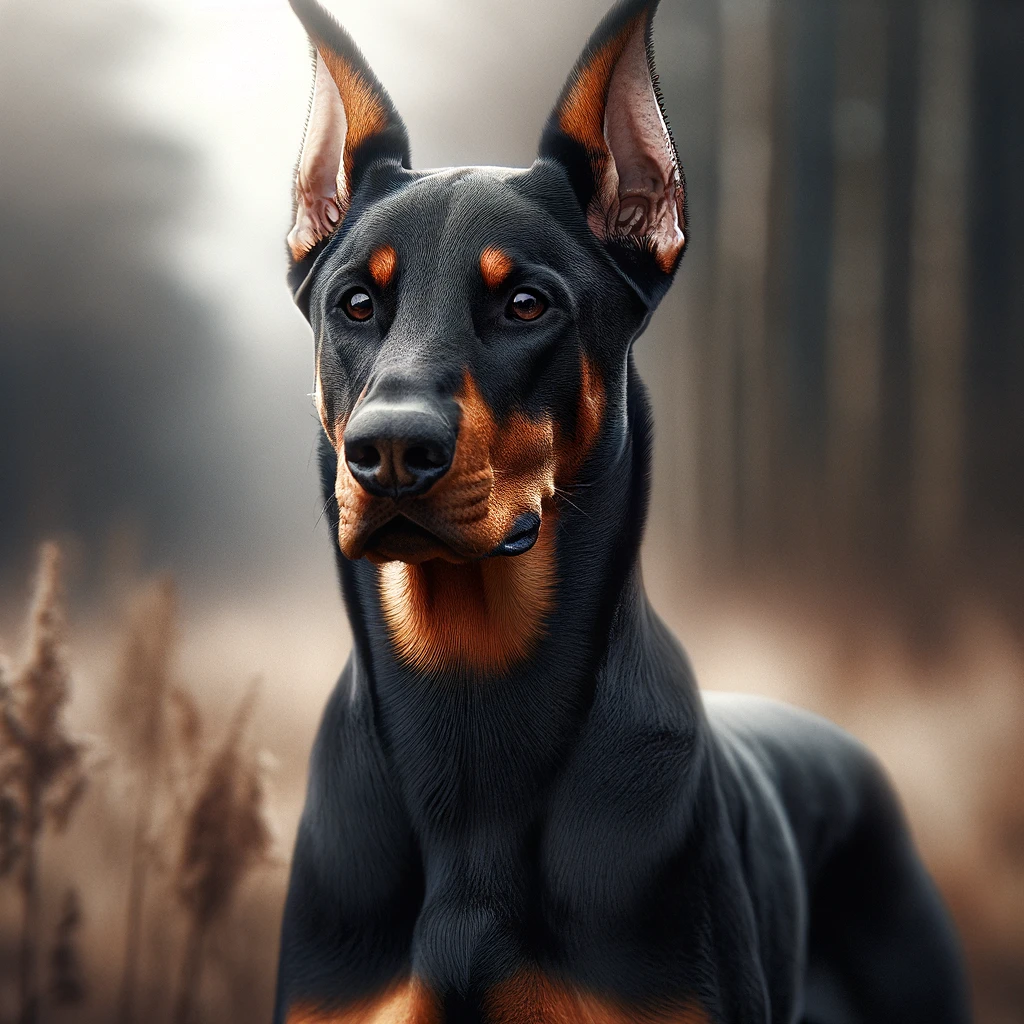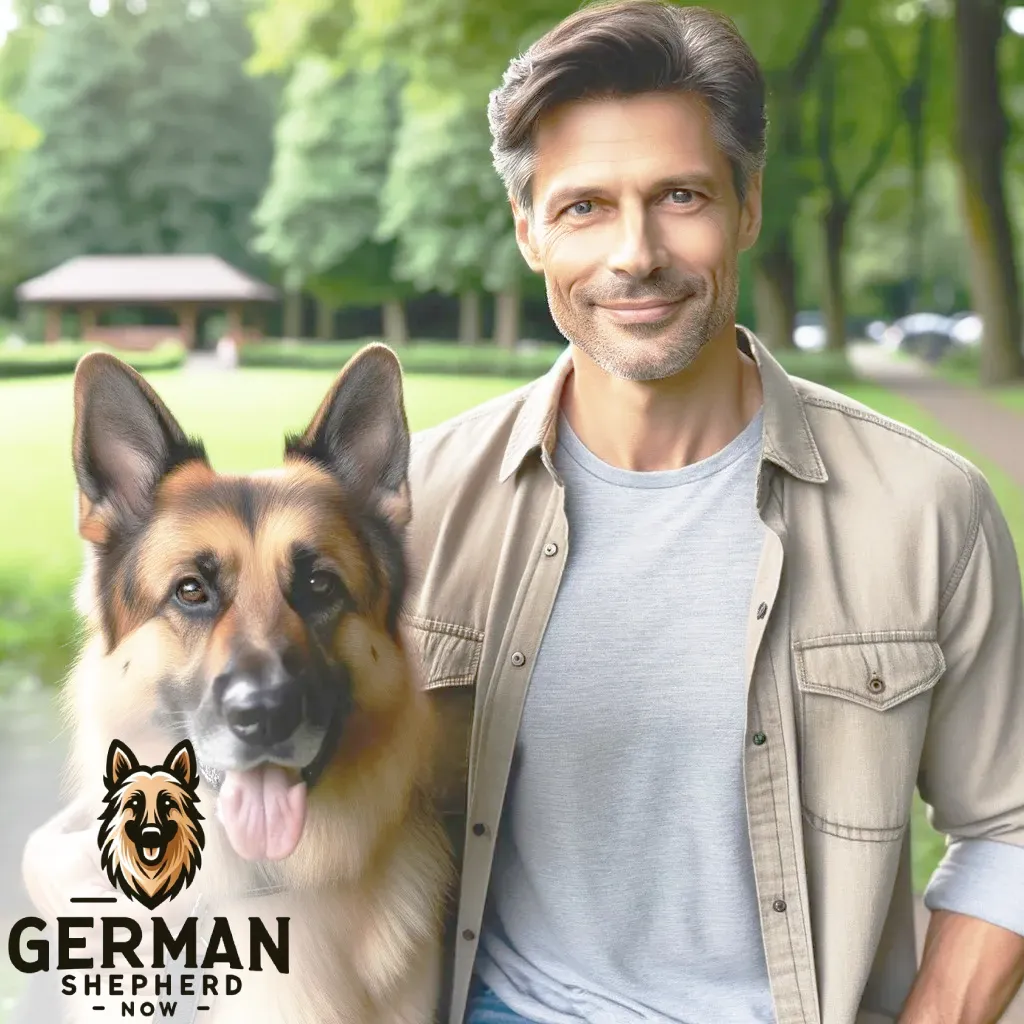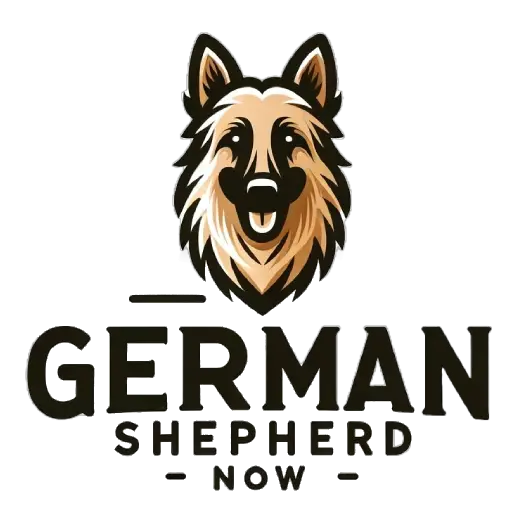German Shepherd Mix With Doberman Pinscher

A Doberman Shepherd is a mix between a German Shepherd and a Doberman Pinscher. This mixed breed is smart, loyal, and strong. They are big dogs that are great at protecting their families and have lots of energy. They can do many jobs like being guard dogs, working with the police, or being loving pets.
They might look like a German Shepherd and a Doberman, with strong bodies and muscles. It’s important to teach and play with them a lot when they are young because they are energetic and have big personalities. With good care, a Doberman Shepherd makes a wonderful friend.
Fascinating Facts About the Doberman Shepherd
The Doberman Shepherd is a special mix of two dogs: the German Shepherd and the Doberman Pinscher. This mix takes the best parts of both breeds. It gets its smartness and ability to do many things from the German Shepherd. From the Doberman, it gets its quickness to notice things, making a smart and faithful friend.
Origins of the Breed
The Doberman Shepherd is a special mix of two dog breeds: the German Shepherd and the Doberman Pinscher. This mix was made to get both dogs’ best parts. The German Shepherd is known for being smart and good at many tasks, while the Doberman is fast and brave. They started making this mix in the late 1900s.
The goal was to have a dog that is great at protecting people and also good at helping as a service animal. Since the German Shepherd and the Doberman were trained to work with police and the military, the Doberman Shepherd is brave, smart, and good at protecting. This makes them not only pets but also guardians.
Intelligence and Trainability
The Doberman Shepherd is super smart, making it one of the easiest dogs to train. They learn fast, like their German Shepherd and Doberman parents. This means they can do more than the usual dog tricks; they can help in search and rescue missions, be great at agility courses, and learn complicated tricks.
They want to make their owners happy, which helps them work well during training. But, because they are so smart, they need activities that make them think. If they get bored, they might start chewing or digging things they shouldn’t. So, keeping their minds busy with fun and challenging tasks is important.
Protective and Loyal Nature
The Doberman Shepherd is a very protective dog, a quality they get from their parent breeds, known for being great guard dogs. They are very loyal to their families, which can make them wary of people they don’t know. This is why it’s important to help them meet many different people and animals when they’re young.
This helps them learn what’s normal and not, so they don’t get too aggressive. They also become very close to their families, sometimes choosing one special person they are extra loyal to. They want to look after their families.
High Energy Levels
Doberman Shepherds are super energetic dogs. They are perfect for families that love to stay active. These dogs do great when they have jobs to do or can play a lot. If they don’t get to burn off their energy, they might start doing things they don’t like to keep themselves busy.
It’s important to make sure they get plenty of exercise every day. Taking them for long walks, running, or playing together in a yard with a fence can help keep them happy and healthy.
Distinctive Appearance
The Doberman Shepherd looks special because it mixes the best looks of its parent dogs. They might have the Doberman’s sleek, sporty shape and the German Shepherd’s strong, muscular body. This mix makes them both graceful and strong.
Their fur can be different colors like black, tan, or brown, and they often have the Doberman’s unique spots. They have faces that show they are smart and always paying attention, making them good-looking and very clever.
Health and Lifespan
The Doberman Shepherd is a mix that usually lives between 10 to 13 years and is pretty healthy. But, like their German Shepherd and Doberman parents, they might get certain health problems. These include hip problems, often seen in big dogs, and heart issues, common in Dobermans.
To help them stay healthy, it’s important to take them to the vet, feed them good food, and make sure they get plenty of exercise. Doing these things can help avoid these problems and keep your Doberman Shepherd happy and healthy for a long time.
Adaptability
Doberman Shepherds are big and lively dogs, but they can live in many different places, even apartments if they get enough exercise. They are happiest when they have lots of room to run and play, like in a house with a big yard.
They can also handle different kinds of weather, but keeping them safe from very hot or cold conditions is important. Doberman Shepherds are good at fitting in with different kinds of families and ways of living. This makes them great pets for people who can care for their exercise and space needs.
Strengths of the Doberman Shepherd
The Doberman Shepherd, a dynamic mix between a German Shepherd and a Doberman Pinscher, embodies a powerful blend of characteristics that make it an exceptional breed. This hybrid combines the best traits of its parent breeds, resulting in a dog with unmatched capabilities and virtues. Here are the strengths of the Doberman Shepherd, explained in detail:
Intelligence and Trainability
Doberman Shepherds inherit high intelligence from German Shepherds and Doberman Pinschers, making them trainable. This intelligence translates into a keen ability to learn commands, perform complex tasks, and adapt to various roles, including service, therapy work, and obedience competitions. Their eagerness to please and capability to grasp training concepts make them a joy to work with.
Loyalty and Protective Instinct
One of the most remarkable traits of the Doberman Shepherd is its unwavering loyalty and strong protective instinct. These dogs are devoted to their families, often forming deep bonds with their owners. They are inclined to guard and protect, making them excellent watchdogs and personal protectors. This protective nature is balanced with proper training to ensure they are not aggressive but discerning and controlled.
Physical Strength and Agility
The Doberman Shepherd boasts an impressive physique, inheriting the Doberman Pinscher’s muscular build and the German Shepherd’s strength and versatility. This combination results in a dog that excels in physical activities, such as running, jumping, and agility courses. Their stamina and endurance make them great companions for active individuals or families who enjoy outdoor adventures.
Versatility
Thanks to their diverse genetic background, Doberman Shepherds are versatile. They can adapt to various roles, from serving as diligent working dogs in law enforcement or search and rescue operations to being loving and gentle family pets. Their adaptable nature also means they can thrive in different environments, whether a spacious country home or a more confined urban setting, provided they receive adequate exercise and mental stimulation.
Health and Longevity
While mixed-breed dogs benefit from genetic diversity, the Doberman Shepherd tends to be healthier and may enjoy a longer lifespan than some purebred dogs. Responsible breeding practices can minimize the risk of inheriting certain genetic disorders common to their parent breeds, leading to a robust and hearty companion.
Weakest Point of the Doberman Shepherd
The Doberman Shepherd, a mix between the German Shepherd and the Doberman Pinscher, inherits many strengths, including intelligence, loyalty, and a protective nature. Their weakest point lies in their sensitivity to training and socialization. This hybrid breed is intelligent, which means they learn. Still, this trait also makes them susceptible to negative experiences if not trained and socialized from a young age.
Early Socialization
Early socialization is crucial for a Doberman Shepherd. To become well-adjusted adults, they must be exposed to various people, places, and situations. Without this early exposure, they may develop fearfulness or aggression towards unfamiliar situations or people. Their protective instincts, inherited from both parent breeds, can become problematic if they perceive a non-threatening situation as a threat due to a lack of socialization.
Training Sensitivity
Doberman Shepherds are eager to please and responsive to training. Their sensitivity means they do not respond well to harsh or punitive training methods. Positive reinforcement techniques are essential to foster a trusting and cooperative relationship. Failure to use positive training methods can lead to a breakdown in communication and exacerbate behavioral issues, such as anxiety or aggression.
Doberman Shepherd vs. German Shepherd vs. Doberman Pinscher
This table compares three distinct breeds: the Doberman Shepherd, a mix between a German Shepherd and a Doberman Pinscher, and its parent breeds, the German Shepherd and the Doberman Pinscher.
Each breed has unique characteristics, strengths, and areas that may require special attention from their owners. Understanding these differences can help potential dog owners decide which breed might best suit their lifestyle and preferences.
| Feature | Doberman Shepherd | German Shepherd | Doberman Pinscher |
| Size | Large | Large | Large to Medium-Large |
| Temperament | Intelligent, loyal, protective | Intelligent, loyal, versatile | Energetic, loyal, alert |
| Energy Level | High | High | High |
| Training Needs | High, sensitive to training methods | High, very trainable | High, responds best to firm and consistent training |
| Socialization Needs | Very high, crucial for temperament | High, important for behavior | High, important to prevent aggression |
| Health | Generally healthy, may inherit conditions from both breeds | Prone to hip dysplasia, elbow dysplasia, and other genetic conditions | Prone to heart issues, hip dysplasia, and genetic disorders |
| Lifespan | 10-13 years | 9-13 years | 10-13 years |
| Best Suited For | Active families, experienced dog owners | Families, work (police, service, etc.), active individuals | Active individuals, experienced dog owners |
| Coat Type | Medium, dense, may vary | Dense, medium-length | Short, smooth |
| Grooming Needs | Moderate | High due to shedding | Low |
| Protective Instinct | Very high | High | Very high |
| Adaptability | Moderate, needs space and activity | Moderate to high, adaptable to active families | Moderate, best with space to exercise |
Ultimate Companion: The Doberman Shepherd
The Doberman Shepherd is a special dog that comes from mixing a German Shepherd with a Doberman Pinscher. It is very smart, loyal, and good at protecting its family. This mixed breed is great at many things, like being a watchful guard dog or a caring friend at home.
Using kind training methods, teaching and playing with a Doberman Shepherd from when it’s young is important. This dog listens well and can adjust to new things easily. It’s perfect for active people who know a lot about dogs. The Doberman Shepherd needs your time and love but gives back so much by being a faithful and lively part of the family.

I’m Martin, and I grew up in the super cool city of Seattle. You know, the place with all the incredible mountains and forests? Yeah, that’s my playground!
Ever since I was little, I’ve been all about nature. I used to wander around the woods with a notebook, doodling all the cool plants and animals I’d find.
